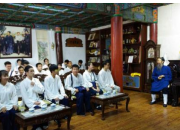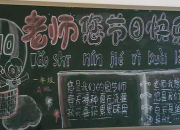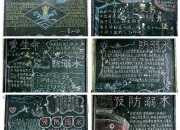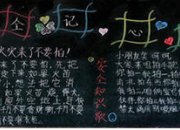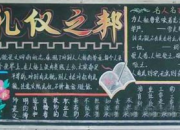英语句子分析
时间:2021-08-31篇一:经典英语句子成分分析

句子成分;简单句、并列句和复合句
一、句子成分
(一)句子成分的定义:构成句子的各个部分叫做句子成分。句子成分有主要成分和次要成分;主要成分有主语和谓语;次要成分有表语、宾语、定语、状语、补足语和同位语。
(二)主语:主语是一个句子所叙述的主体,一般位于句首。但在there be结构、疑问句(当主语不疑问词时)和倒装句中,主语位于谓语、助动词或情态动词后面。主语可由名词、代词、数词、不定式、动名词、名词化的形容词和主语从句等表示。例如:
During the 1990s, American country music has become more and more popular.(名词) We often speak English in class.(代词)
One-third of the students in this class are girls.(数词)
To swim in the river is a great pleasure.(不定式)
Smoking does harm to the health.(动名词)
The rich should help the poor.(名词化的形容词)
When we are going to have an English test has not been decided.(主语从句)
It is necessary to master a foreign language.(it作形式主语,真正的主语为后面的不定式)
(三)谓语:谓语说明主语所做的动作或具有的特征和状态。动词在句中作谓语,一般放在主语之后。谓语的构成如下:
1、简单谓语:由一个动词或动词短语构成。如:He practices running every morning.
2、复合谓语:(1)由情态动词或其他助动词加动词原形构成。如:You may keep the book for two weeks. He has caught a bad cold. (2)由系动词加表语构成。如:We are students.
(四)表语:表语用以说明主语的身份、特征和状态,它一般位于系动词(如be, become, get, look, grow, turn, seem等)之后。表语一般由名词、代词、形容词、分词、数词、不定式、动名词、介词短语、副词及表语从句表示。例如:
Our teacher of English is an American.(名词)
Is it yours?(代词)
The weather has turned cold.(形容词)
The speech is exciting.(分词)
Three times seven is twenty one?(数词)
His job is to teach English.(不定式)
His hobby(爱好)is playing football.(动名词)
The machine must be out of order.(介词短语)
Time is up. The class is over.(副词)
The truth is that he has never been abroad.(表语从句)
(五)宾语:宾语表示动作的对象或承爱者,一般位于及物动词和介词后面。例如: They went to see an exhibition(展览)yesterday.(名词)
The heavy rain prevented me form coming to school on time.(代词)
How many dictionaries do you have? I have five.(数词)
They helped the old with their housework yesterday.(名词化形容词)
He pretended not to see me.(不定式短语)
I enjoy listening to popular music.(动名词短语)
I think(that)he is fit for his office.(宾语从句)
宾语种类:(1)双宾语(间接宾语+直接宾语),例如:Lend me your dictionary, please.
(2)复合宾语(宾语+宾补),例如:They elected him their monitor.
(六)宾语补足语:英语中有些及物动词,除有一个直接宾语以外,还要有一个宾语补语,才能使句子的意义完整。带有宾语补足语的一般句型为:某些及物动词(如make等+宾语+宾补)。宾补可由名词、形容词、副词、不定式、分词、介词短语和从句充当。例如: His father named him Dongming.(名词)
They painted their boat white.(形容词)
Let the fresh air in.(副词)
You mustn't force him to lend his money to you.(不定式短语)
We saw her entering the room.(现在分词)
We found everything in the lab in good order.(介词短语)
We will soon make our city what your city is now.(从句)
(七)定语:修饰名词或代词的词、短语或从句称为定语。定语可由以下等成分表示: Guilin is a beautiful city.(形容词)
China is a developing country; America is a developed country.(分词)
There are thirty women teachers is our school.(名词)
His rapid progress in English made us surprised.(代词)
Our monitor is always the first to enter the classroom.(不定式短语)
The teaching plan for next term has been worked out.(动名词)
He is reading an article about how to learn English.(介词短语)
(八)状语:修饰动词、形容词、副词或整个句子,说明动作或状态特征的句子成分,叫做状语。可由以下形式表示:
Light travels most quickly.(副词及副词性词组)
He has lived in the city for ten years.(介词短语)
He is proud to have passed the national college entrance examination.(不定式短语) He is in the room making a model plane.(分词短语)
Wait a minute.(名词)
Once you begin, you must continue.(状语从句)
状语种类如下:
How about meeting again at six?(时间状语)
Last night she didn't go to the dance party because of the rain.(原因状语)
I shall go there if it doesn't rain.(条件状语)
Mr Smith lives on the third floor.(地点状语)
She put the eggs into the basket with great care.(方式状语)
She came in with a dictionary in her hand.(伴随状语)
In order to catch up with the others, I must work harder.(目的状语)
He was so tired that he fell asleep immediately.(结果状语)
She works very hard though she is old.(让步状语)
I am taller than he is.(比较状语)
二、简单句、并列句和复合句
(一)句子种类两种分类法
1、按句子的用途可分四种:
1)陈述句(肯定、否定):He is six years old; She didn't hear of you before.
2)疑问句(一般、特殊、选择、反意):Do they like skating? How old is he? Is he six or seven years old? Mary can swim, can't she?
3)祈使句:Be careful, boys; Don't talk in class
4)感叹句:How clever the boy is!
2、按句子的结构可分三种:
1)简单句:只有一个主语(或并列主语)和一个谓语(或并列谓语)。
e.g. He often reads English in the morning.
Tom and Mike are American boys.
She likes drawing and often draws pictures for the wall newspapers.
2) 并列句:由并列连词(and, but, or等)或分号(;)把两个或两个以上的简单句连在一起构成。
e.g. You help him and he helps you.
The future is bright; the road is tortuous. 前途是光明的,道路是曲折的。
3)复合句:含有一个或一个以上从句的句子。复合句包含:名词性从句(主语从句、宾语从句、表语从句和同位语从句)、定语从句和状语从句等。
e.g. The foreign visitors took a lot of pictures when they were at the Great Wall.
(二)简单句的五种基本句型
1、主语+系动词+表语:e.g. He is a student.
2、主语+不及物动词:e.g. We work.
3、主语+及物动词+宾语:e.g. Henry bought a dictionary.
4、主语+及物动词+双宾语(间接宾语+直接宾语):e.g. My father bought me a car.
5、主语+及物动词+复合宾语(宾语+宾补):e.g. Tom made the baby laugh.
注:其他各种句子都可由这一种基本句型扩展、变化或省略而构成。
(三)并列句的分类
1、表示连接两个同等概念,常用and, not only…but also…, neither…nor…, then等连接。e.g. The teacher's name is Smith, and the student's name is John.
2、表示选择,常用的连词有or, either…or…, otherwise等。e.g. Hurry up, or you'll miss the train.
3、表示转折,常用的连词有but, still, however, yet, while, when等。e.g. He was a little man with thick glasses, but he had a strange way of making his classes lively and interesting.
4、表示因果关系,常用的连词有so, for, therefore等。e.g. August is the time of the year for rive harvest, so every day I work from dawn until dark.
按要求完成下列句子:
1. He dares to tell the truth.(改为否定句)
2. They have lived here for more than ten years.(对画线部分提问)
3. There will be a sports meet at the end of this month, ____________?(完成反意疑问)
4. You must be careful with your pronunciation.(改为祈使句)
5. They went for a walk after supper yesterday evening.(改为一般疑问句)
6. It is an interesting story.(改为感叹句)
7. This magazine comes out(出版)every other week.(对画线部分提问)
8. They could hardly believe his words, ____________?(完成反意疑问)
9. The moon is shining brightly.(改为感叹句)
10.Our English teacher is always encouraging us to speak English in class. (对画线部分提问)
答案1. He doesn't dare to tell the truth. 或He dare not tell the truth. 2. How long have they lived here? 3. won't there 4. Be careful with your pronunciation. 5. Did they go for a walk after supper yesterday evening? 6. What an interesting story (it is)! 或How interesting the story is! 7. How often does this magazine come out? 8. could they 9. How brightly the moon is shining! 10. Who is always encouraging us to speak English in class?
I hope you are very well(复合句). I'm fine, but tired(简单句). Right now it is the summer vacation and I'm helping my Dad on the farm(并列句). August is the hottest month here(简单句). It is the time of year for the rice harvest, so every day I work from dawn until dark.(并列句) Sometimes we go on working after dark by the lights of our tractors(简单句). We grow rice in the south of the States, but in the north where it is colder they grow wheat(并列复合句). We have a lot of machines on the farm(简单句). Although the farm is large, my Dad has only two men working for him(复合句). But he employs more men for the harvest(简单句). My brother takes care of the vegetable garden(简单句). It doesn't often rain in the summer here(简单句). As a result, we have to water the vegetable garden(简单句). Every evening we pump water from a well(简单句). It then runs along channels to different parts of the garden(简单句).
Most Saturday evenings there is a party, even at harvest time(简单句). These parties often make us very happy(简单句). We cook meat on an open fire outside(简单句). It's great( 简单句)! Americans eat a lot of meat - too much in my opinion(简单句). Some of my friends drink beer(简单句). I don't, because I have to drive home after the party(复合句). In your letter you asked about the time in different areas of the States(简单句). There are five different time areas in the States(简单句). In my state we are fourteen hours behind Beijing time(简单句). How many different time areas do you have in China(简单句)? Well, I must stop and get some sleep(简单句). Please give my best regards to your parents(简单句).
call on号召,拜访(某人)
call at拜访、参观(某地)
call for去叫某人, 要求, 需要
call up使回忆起, 征召入伍
call in召集,请某人来
call out大喊,高叫
call off取消,不举行
1) Doctors are often called _____ in the middle of the war.
2) Please wait for me at home. I'll call _______ you at your house at seven tonight.
3) The trains calls _______ several big cities between Beijing and Guangzhou.
4) He called her name __________, but she didn't answer.
5) The sports meet was called ____ on account of the rain.
( in, for, at, out, off)



